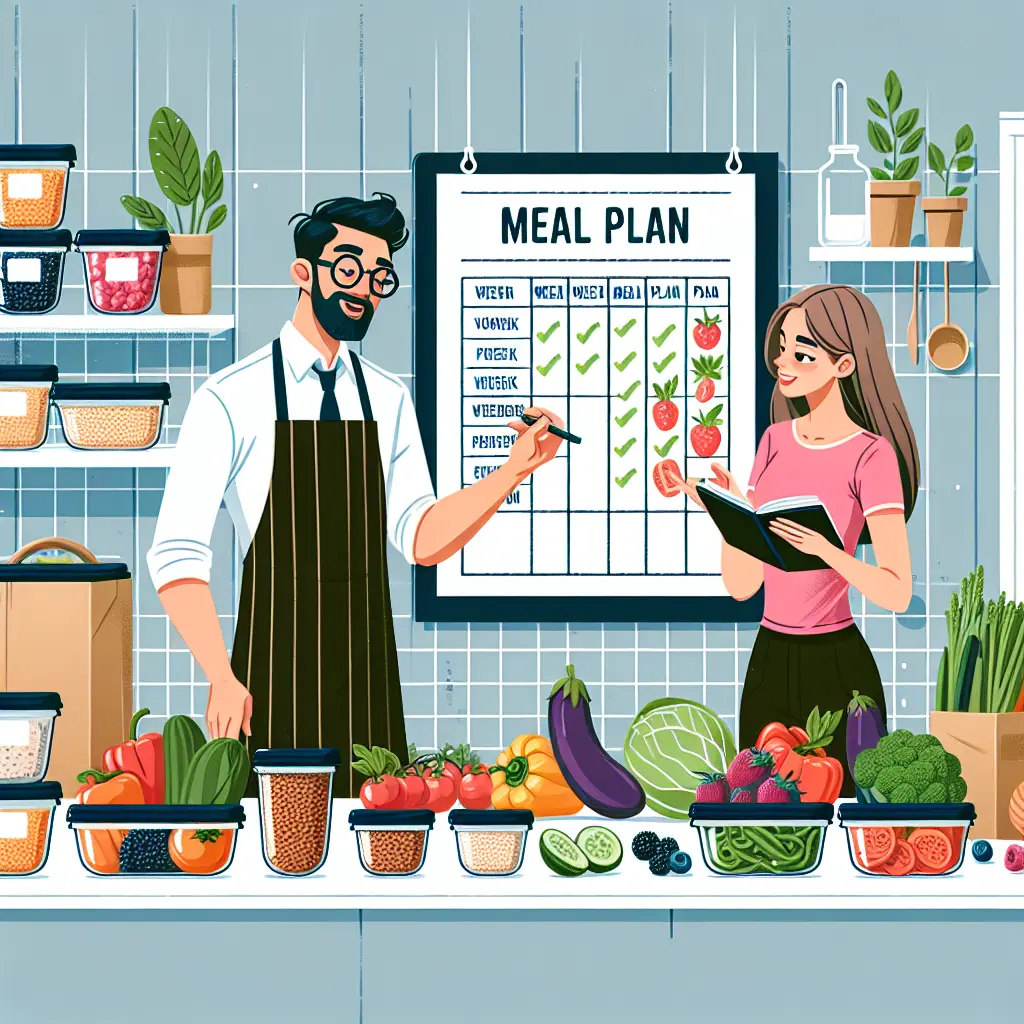
Embarking on the journey of Zero Waste Meal Planning is not just about nourishing your body but also nurturing the planet. This beginner's guide serves as your gateway into a sustainable lifestyle, seamlessly integrating eco-friendly meal prep into your daily routine. By adopting zero waste cooking tips and waste-free meal ideas, you can significantly reduce food waste while enjoying delicious and nutritious meals.
Understanding the Concept of Zero Waste
Zero Waste Meal Planning revolves around creating minimal waste by utilizing every component of the ingredients you purchase. This approach reflects the interconnectedness of all life forms on Earth, similar to the Last Universal Common Ancestor (LUCA). For insights into LUCA, explore Science News.
The Environmental Impact: A Global Perspective
Consider the vast steppes of Mongolia, where herders like Purev Batmunkh combat plastic pollution. This vivid imagery underscores the pressing need to reduce waste in our daily lives. Adopting zero waste cooking tips, such as reusing vegetable scraps for broth or composting food remnants, can significantly reduce food waste globally. Learn more about these efforts in Mongolian News.
Practical Steps for Beginners
- Minimalist Meal Planning: Simplify your grocery list by focusing on versatile whole foods, reducing packaging waste, and allowing for more creative cooking.
- Zero Waste Recipes: Use recipes that incorporate every part of the ingredient—like carrot tops for pesto or candied citrus peels.
- Eco-Conscious Cooking Techniques: Implement batch cooking and freezing to preserve ingredients and minimize shopping trips.
- Plastic-Free Meal Prep: Replace single-use plastics with reusable containers, beeswax wraps, and cloth bags to enhance your commitment to a zero waste lifestyle.
- Zero Waste Grocery Shopping: Navigate grocery aisles sustainably by choosing bulk bins, bringing your own bags, and prioritizing local, organic produce.
Embracing Sustainable Eating Habits
Green meal planning practices extend beyond individual benefits to support global sustainability. Colleges are becoming "living labs" for climate change initiatives by integrating sustainable practices into operations. This model can inspire kitchen experimentation and innovation, similar to student projects at the New York Institute of Technology featured in Dezeen.
Zero Waste Kitchen Hacks
- Repurpose Food Scraps: Transform onion skins and celery ends into stocks.
- Zero Waste Food Storage: Use glass jars or silicone bags to store leftovers and prevent spoilage.
- Organize a Zero Waste Pantry: Stock staples like grains, legumes, and spices in bulk to minimize packaging waste.
Overcoming Financial Hurdles
Sustainable meal planning can be cost-effective with strategic budgeting. Take inspiration from a story of someone who paid off $72,000 in student loans by prioritizing needs over wants—an approach applicable to zero waste grocery shopping. For more budgeting tips, visit Financial Advice Hub.
Engaging with Community and Culture
Connecting with local communities can enhance your commitment to sustainable practices. From Mongolia's steppes to Pennsylvania's fracking sites, grassroots efforts combat pollution and promote eco-friendliness. These stories provide inspiration and practical lessons for integrating zero waste principles into daily life.
The Bigger Picture: Sustainability Beyond the Kitchen
Sustainable meal planning extends beyond the kitchen into broader lifestyle choices. Consider parallels between personal sustainability efforts and advancements in hydrogen fuel-cell technology for yachts, contributing to net-zero goals. Explore this transformative approach further at Marine Technology News.
Conclusion: Embrace the Zero Waste Journey
Embarking on a zero waste meal planning journey enriches your culinary experiences while contributing to a sustainable planet. Key takeaways include:
- Minimalist Meal Planning: Simplify your shopping list with whole foods.
- Creative Cooking: Utilize every part of ingredients inventively.
- Sustainable Techniques: Use batch cooking and freezing.
- Plastic-Free Choices: Opt for reusable alternatives.
- Mindful Shopping: Prioritize local, organic, and bulk purchases.
Zero waste practices influence broader lifestyle choices and deepen connections with global sustainability efforts. Engage with community initiatives and technological advancements to contribute to a healthier planet.
Reflect on how these practices fit into your life and share your experiences or questions in the comments below. Let's build a community dedicated to impactful environmental changes.
Thank you for joining me on this journey. Together, we can cultivate a more sustainable world—one meal at a time.
Warm regards,
Fiona Clarkson